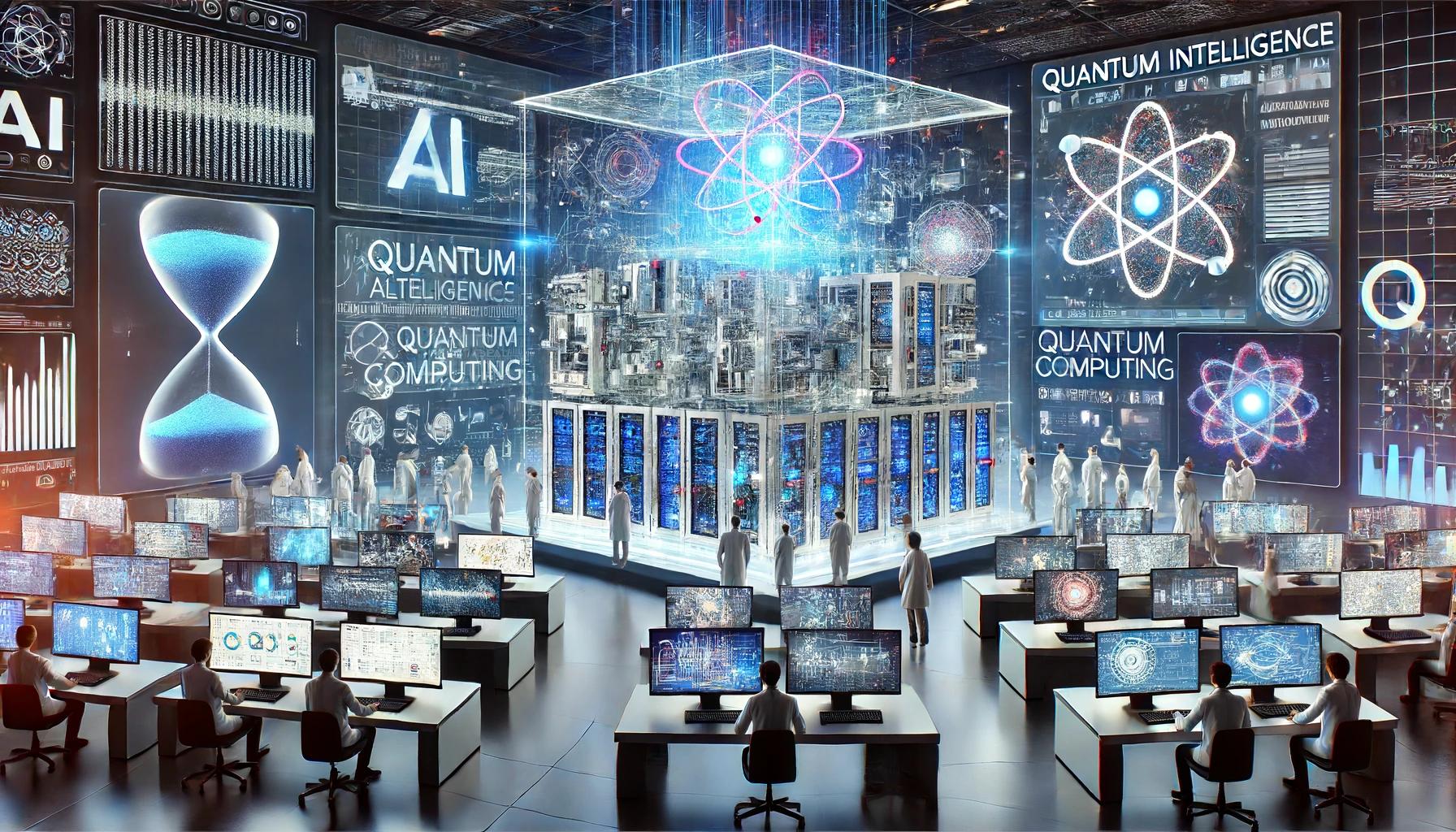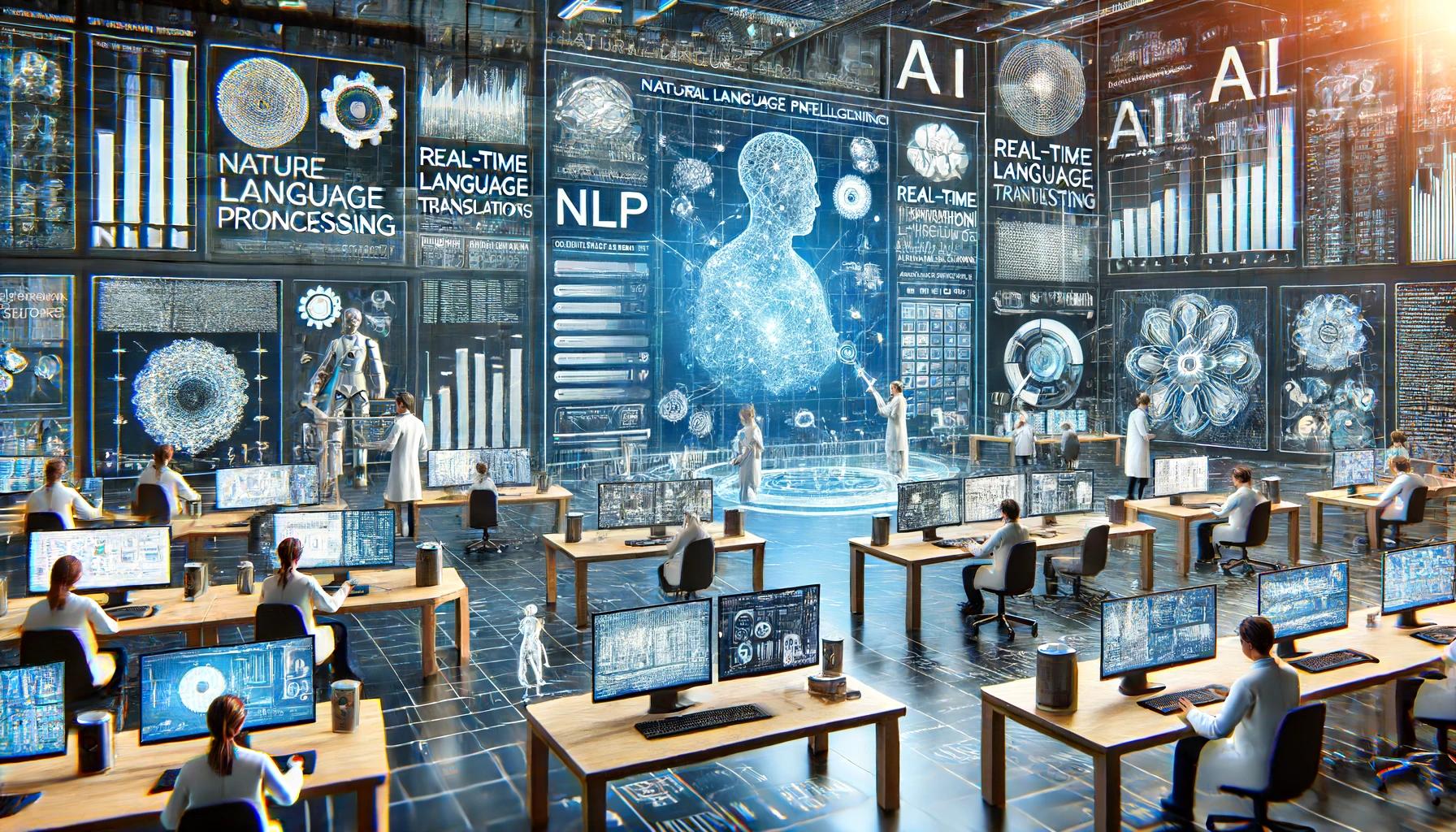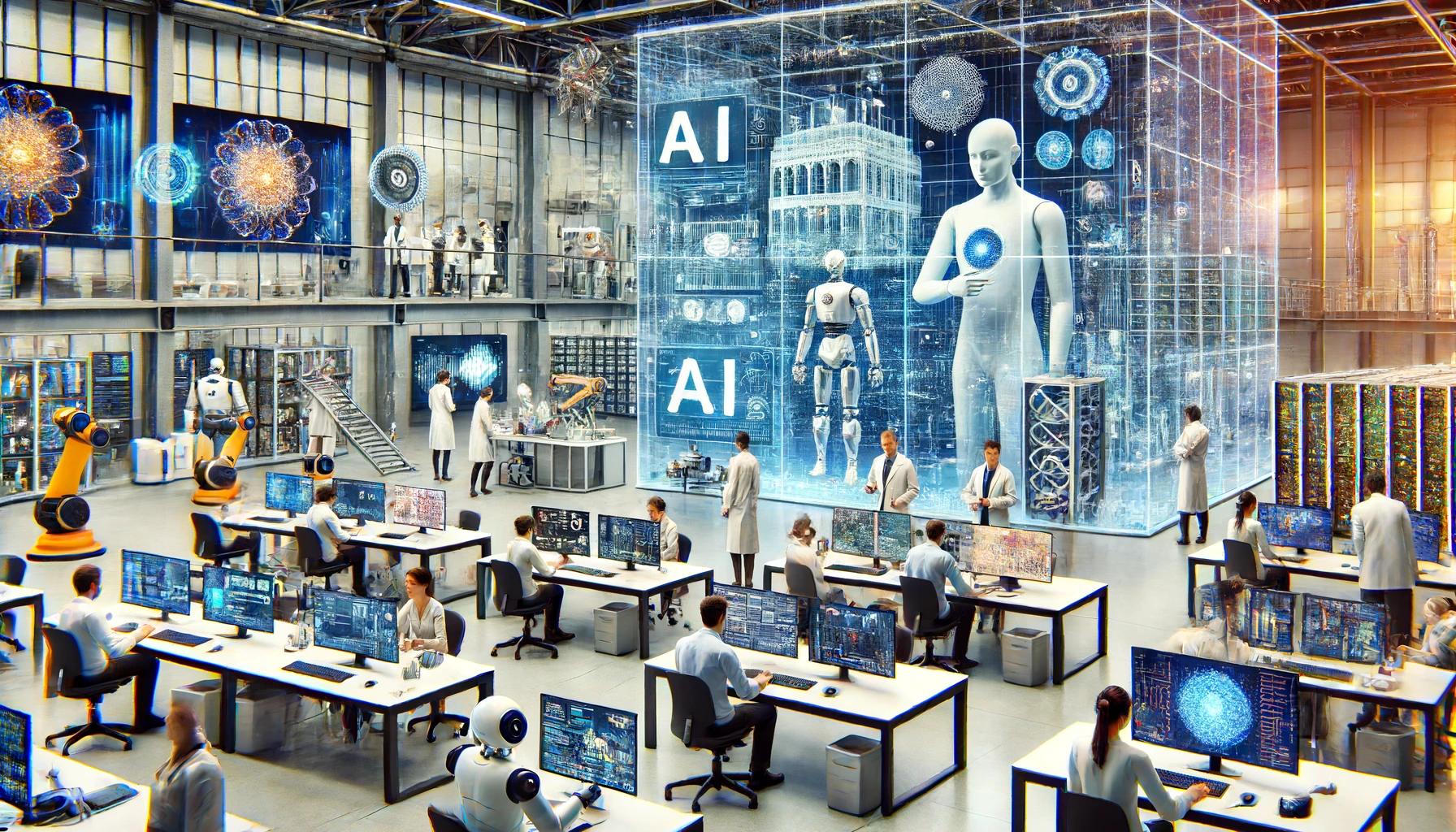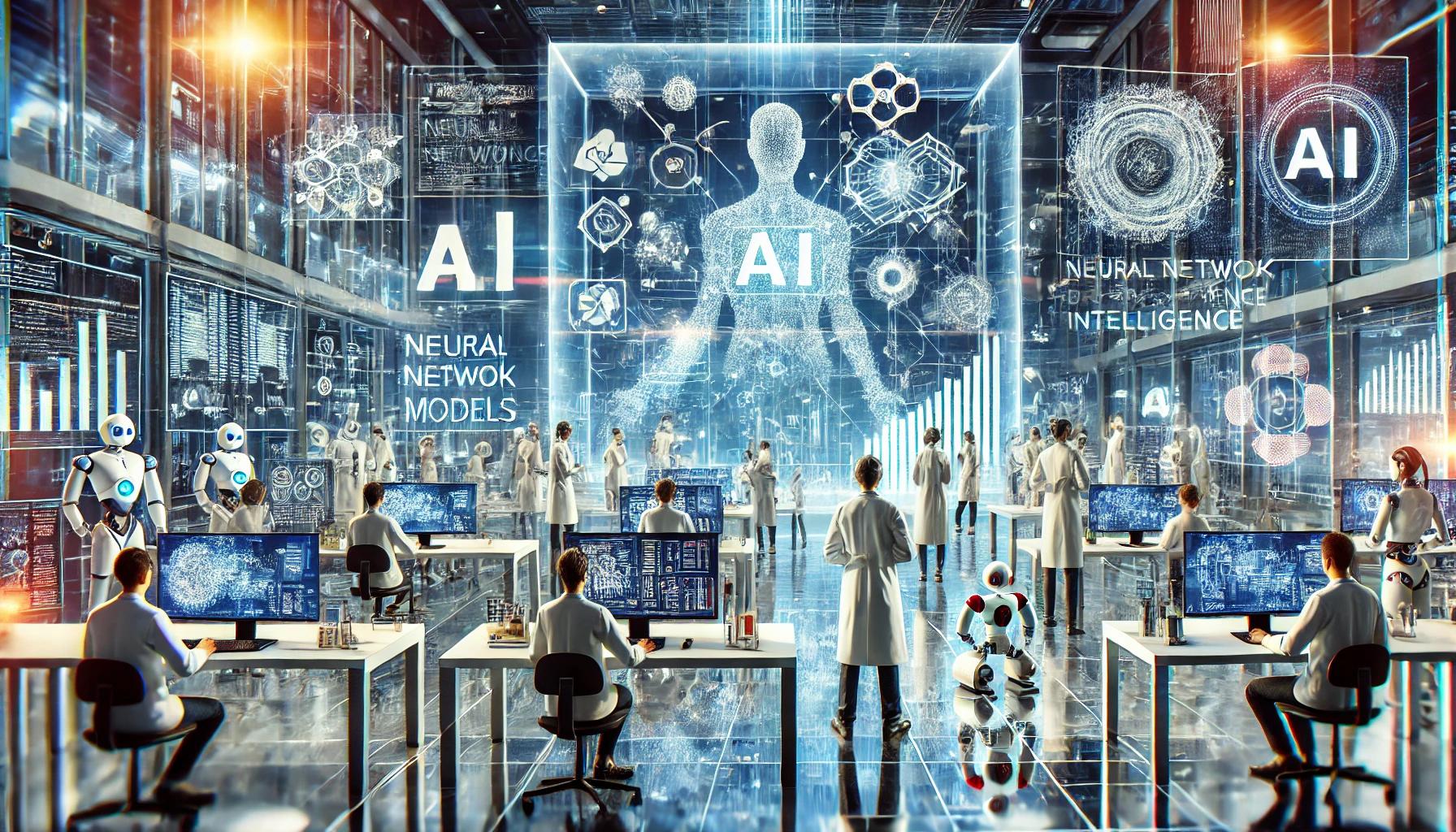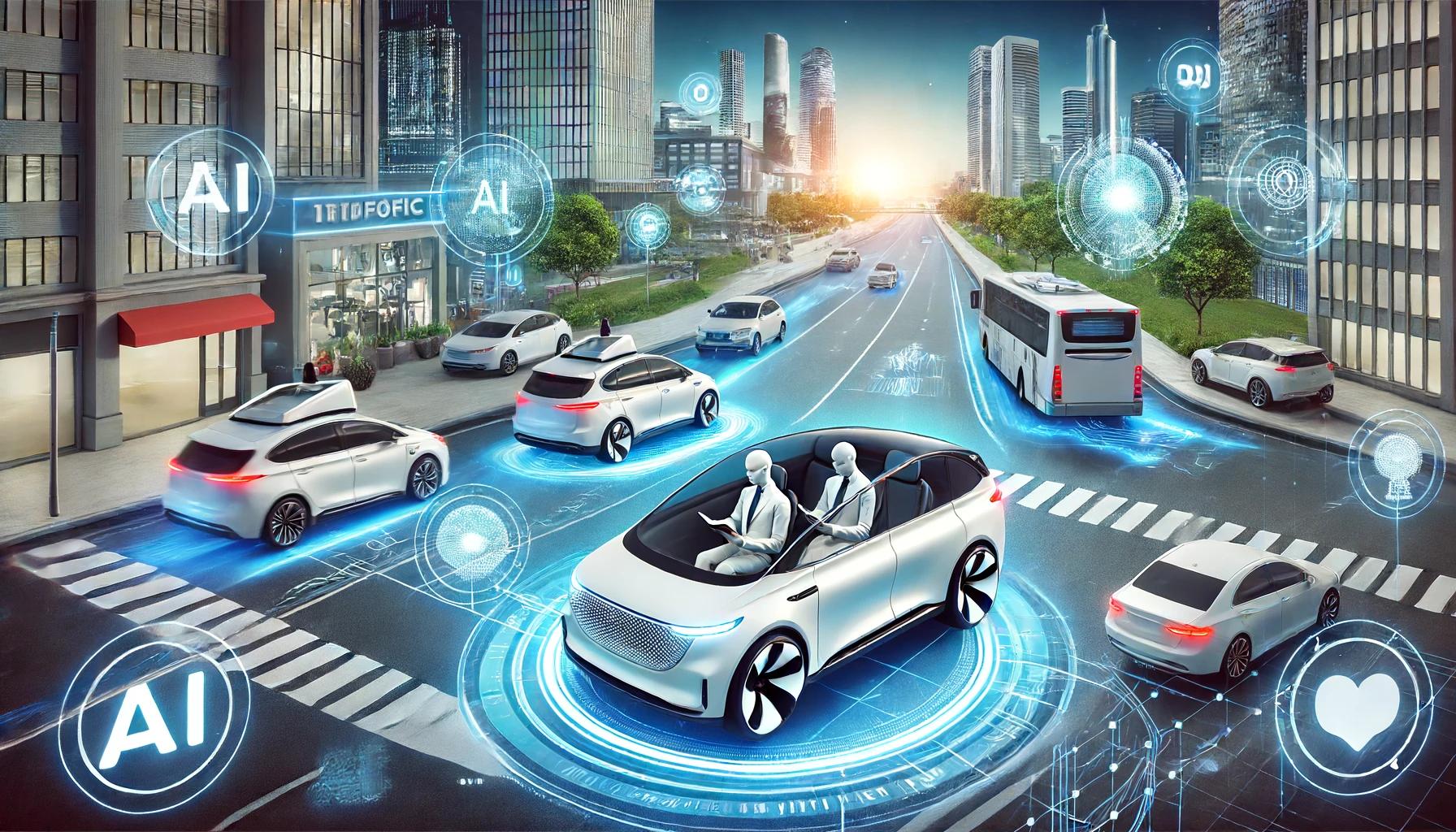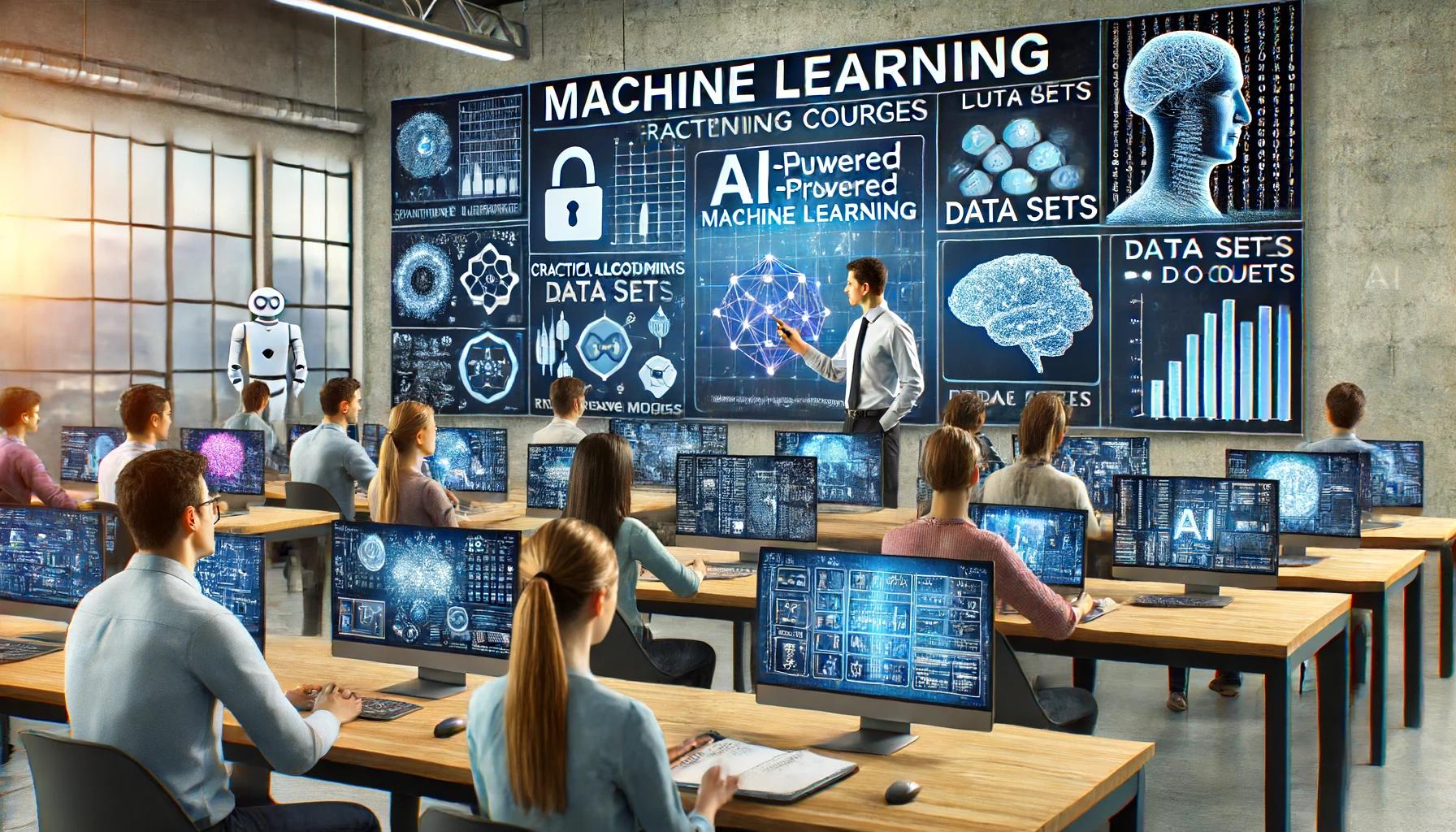- Definition of AI and Quantum Computing
- Importance and Relevance of These Technologies
- Overview of the Article Structure
- Fundamentals of AI
- Definition and History of AI
- Types of AI
- Key Components of AI
- Basics of Quantum Computing
- Definition and Principles of Quantum Computing
- Key Concepts: Qubits, Superposition, and Entanglement
- Differences Between Classical and Quantum Computing
- Intersection of AI and Quantum Computing
- How AI and Quantum Computing Complement Each Other
- Potential Benefits of Combining AI with Quantum Computing
- Current Research and Advancements in the Field
- Notable Projects and Collaborations
- Applications and Use Cases
- AI-Driven Quantum Algorithms
- Quantum Machine Learning
- Enhancing AI Capabilities with Quantum Computing
- Real-World Examples and Potential Future Applications
- Potential Future Applications
- Future Prospects
- Predictions and Future Trends in AI and Quantum Computing
- Potential Breakthroughs and Innovations
- Long-Term Impact on Various Industries and Society
- Societal Implications
Definition of AI and Quantum Computing
Artificial Intelligence (AI) refers to the simulation of human intelligence in machines programmed to think and learn like humans. These intelligent systems can perform tasks such as speech recognition, decision-making, and language translation. AI is broadly categorized into narrow AI (designed for specific tasks), general AI (with general cognitive abilities), and superintelligent AI (surpassing human intelligence).
Quantum Computing is a revolutionary field of computing based on the principles of quantum mechanics. Unlike classical computers that use bits as the smallest unit of information (0 or 1), quantum computers use quantum bits or qubits, which can exist simultaneously in multiple states (superposition). This property, along with entanglement and quantum interference, allows quantum computers to solve complex problems much faster than classical computers.
Importance and Relevance of These Technologies
The convergence of AI and quantum computing is set to transform various industries and aspects of life. AI has already revolutionized fields like healthcare, finance, and transportation by providing intelligent automation, predictive analytics, and enhanced user experiences. Quantum computing, with its ability to process vast amounts of data at unprecedented speeds, holds the promise of solving problems that are currently intractable for classical computers, such as complex molecular simulations, optimization problems, and cryptographic challenges.
Combining AI with quantum computing can potentially lead to breakthroughs in machine learning, optimization algorithms, and computational creativity. This integration is expected to push the boundaries of what is possible in AI research and application, enabling the development of more sophisticated and efficient intelligent systems.
Overview of the Article Structure
This article will delve into the fundamentals of AI and quantum computing, explore their intersection, discuss their applications and use cases, address the challenges and limitations, and consider the future prospects of these transformative technologies. The structure is as follows:
- Fundamentals of AI: History, types, and key components.
- Basics of Quantum Computing: Principles, key concepts, and differences from classical computing.
- Intersection of AI and Quantum Computing: Complementary aspects, benefits, and current research.
- Applications and Use Cases: AI-driven quantum algorithms, quantum machine learning, real-world examples.
- Challenges and Limitations: Technical challenges, current limitations, ethical and societal implications.
- Future Prospects: Predictions, potential breakthroughs, and long-term impact.
- Conclusion: Summary of key points and the significance of continued research.
- References: Sources and further reading materials.
Fundamentals of AI
Definition and History of AI
Artificial Intelligence (AI) is the branch of computer science dedicated to creating systems capable of performing tasks that typically require human intelligence. This includes problem-solving, learning, reasoning, and understanding natural language. The term “artificial intelligence” was coined by John McCarthy in 1956 during the Dartmouth Conference, which is considered the founding event of AI as a field of study.
The history of AI is marked by periods of optimism and significant advancements, known as AI summers, followed by periods of reduced funding and interest, known as AI winters. Early successes in the 1950s and 1960s included programs that could solve algebra problems, prove theorems, and engage in basic conversation. However, the limitations of these early systems led to the first AI winter in the 1970s. The 1980s saw a resurgence with the development of expert systems, but a second AI winter occurred in the late 1980s and early 1990s due to the high cost and limited capabilities of these systems. The late 1990s and early 2000s marked another turning point with the advent of machine learning and neural networks, leading to the modern era of AI.
Types of AI
AI can be categorized into three types based on their capabilities:
- Narrow AI: Also known as weak AI, narrow AI is designed for specific tasks and operates under a limited set of constraints. Examples include virtual assistants like Siri and Alexa, recommendation systems on streaming services, and image recognition software.
- General AI: Also referred to as strong AI or AGI (Artificial General Intelligence), general AI possesses the ability to understand, learn, and apply knowledge across a broad range of tasks at a level comparable to human intelligence. This type of AI remains theoretical and has not yet been realized.
- Superintelligent AI: Superintelligent AI surpasses human intelligence in all aspects, including creativity, problem-solving, and social intelligence. This concept is largely speculative and is a topic of significant debate and concern regarding its potential impact on humanity.
Key Components of AI
- Machine Learning (ML): ML is a subset of AI that involves the development of algorithms that allow computers to learn from and make decisions based on data. This includes supervised learning, unsupervised learning, and reinforcement learning. ML algorithms can identify patterns, make predictions, and improve over time with exposure to more data.
- Neural Networks: Inspired by the human brain, neural networks are a series of algorithms that attempt to recognize underlying relationships in a set of data through a process that mimics the way the human brain operates. These networks consist of layers of nodes, where each node represents a neuron, and are used in various applications such as image and speech recognition.
- Natural Language Processing (NLP): NLP is a field of AI that focuses on the interaction between computers and humans through natural language. It involves enabling computers to understand, interpret, and respond to human language in a way that is both meaningful and useful. Applications of NLP include language translation, sentiment analysis, and chatbots.
Basics of Quantum Computing
Definition and Principles of Quantum Computing
Quantum Computing is a cutting-edge field of computing that leverages the principles of quantum mechanics to perform computations. Unlike classical computers, which use bits as the smallest unit of data, quantum computers use quantum bits or qubits. Quantum computing takes advantage of quantum phenomena such as superposition and entanglement to process information in ways that classical computers cannot .
The principles of quantum computing are rooted in the laws of quantum mechanics, a fundamental theory in physics that describes the physical properties of nature at the scale of atoms and subatomic particles. Quantum computers operate using quantum gates and circuits, analogous to the logic gates used in classical computing, but with vastly different and more powerful properties.
Key Concepts: Qubits, Superposition, and Entanglement
- Qubits: A qubit is the basic unit of quantum information. Unlike a classical bit, which can be either 0 or 1, a qubit can exist in a state of 0, 1, or both simultaneously, thanks to the property of superposition. This ability to be in multiple states at once exponentially increases the computational power of quantum systems .
- Superposition: Superposition is the principle that allows a qubit to be in a combination of both 0 and 1 states simultaneously. This property enables quantum computers to process a vast number of possibilities at once, providing a significant advantage over classical computers in solving certain types of problems .
- Entanglement: Entanglement is a quantum phenomenon where two or more qubits become interconnected such that the state of one qubit directly affects the state of the other, no matter the distance between them. This entanglement allows quantum computers to perform complex computations more efficiently than classical systems by enabling instantaneous information transfer between entangled qubits .
Differences Between Classical and Quantum Computing
- Data Representation:
- Classical Computing: Uses bits as the smallest unit of data, which can be either 0 or 1.
- Quantum Computing: Uses qubits, which can be in a state of 0, 1, or any superposition of these states.
- Computational Power:
- Classical Computing: Follows binary logic and processes one state at a time, leading to a linear increase in computational power with the addition of more bits.
- Quantum Computing: Exploits superposition and entanglement to process multiple states simultaneously, resulting in an exponential increase in computational power with the addition of more qubits.
- Problem-Solving Capability:
- Classical Computing: Efficient at solving problems that can be broken down into a series of deterministic steps.
- Quantum Computing: Excels at solving complex problems involving large-scale optimization, cryptography, and simulations of quantum systems, which are infeasible for classical computers due to their exponential complexity .
Intersection of AI and Quantum Computing
How AI and Quantum Computing Complement Each Other
AI and Quantum Computing represent two of the most transformative technologies of our time. AI excels in processing large datasets, making predictions, and automating complex tasks, while quantum computing offers unprecedented computational power through its unique principles of superposition and entanglement. Together, these technologies can address problems that are currently intractable for classical systems.
Quantum computers can enhance AI algorithms by accelerating the processing speed and improving the accuracy of machine learning models. For instance, quantum algorithms like the Quantum Approximate Optimization Algorithm (QAOA) and Quantum Principal Component Analysis (QPCA) have the potential to solve optimization problems and analyze large datasets much more efficiently than classical algorithms.
Potential Benefits of Combining AI with Quantum Computing
- Enhanced Machine Learning: Quantum computing can significantly speed up machine learning processes, enabling the training of more complex models in less time. This can lead to improvements in areas like generative AI, where models create new data, such as images or text, based on learning from existing data .
- Improved Optimization: Many AI applications involve solving optimization problems, such as route planning, resource allocation, and financial modeling. Quantum computing can handle these problems more efficiently, providing better solutions in less time.
- Advanced Simulations: Quantum computers can simulate quantum systems accurately, which is beneficial for AI applications in materials science, drug discovery, and chemistry. These simulations can lead to the discovery of new materials and drugs by accurately predicting molecular behavior.
- Enhanced Data Security: Quantum computing can improve AI’s capabilities in cybersecurity by developing more secure encryption methods and detecting vulnerabilities more effectively.
Current Research and Advancements in the Field
Research in Quantum AI is rapidly advancing, with significant contributions from academic institutions and tech companies. Key areas of focus include developing quantum algorithms for machine learning, optimizing AI models using quantum computing, and creating hybrid classical-quantum systems to leverage the strengths of both technologies .
- Quantum AI Algorithms: Researchers are exploring algorithms like Quantum Support Vector Machines (QSVM) and Quantum Neural Networks (QNN) to enhance AI’s ability to process and analyze data. These algorithms show promise in providing more efficient and accurate predictions compared to their classical counterparts.
- Hybrid Systems: Combining classical and quantum computing resources can maximize the strengths of both. For example, classical computers can handle data pre-processing and post-processing, while quantum computers can perform the core computational tasks that benefit from quantum speed-up .
- Generative AI: Quantum computing can enhance generative AI models, such as Generative Adversarial Networks (GANs), by improving their training efficiency and output quality. This can lead to more realistic and higher-quality generated content in fields like art, music, and language generation.
- Industry Applications: Companies like IBM, Google, and startups like Le Bars are at the forefront of developing practical applications for Quantum AI. These include advancements in natural language processing, image recognition, and predictive analytics, which can revolutionize industries ranging from healthcare to finance.
Notable Projects and Collaborations
- IBM Quantum Experience: IBM offers cloud-based access to quantum computers, enabling researchers and developers to experiment with quantum AI algorithms and explore their potential applications.
- Google Quantum AI Lab: Google’s research focuses on developing quantum processors and algorithms that can solve AI problems more efficiently, with notable progress in quantum supremacy and machine learning applications.
- Le Bars: As a leading startup in the quantum AI space, Le Bars is working on integrating quantum computing with generative AI to create innovative solutions in various industries .
Applications and Use Cases
AI-Driven Quantum Algorithms
AI-driven quantum algorithms are designed to leverage the unique capabilities of quantum computing to enhance AI processes. These algorithms can significantly improve the efficiency and accuracy of various AI tasks, from optimization to data analysis. For instance, the Quantum Approximate Optimization Algorithm (QAOA) and the Quantum Support Vector Machine (QSVM) offer solutions to complex optimization problems and classification tasks much faster than classical algorithms. By utilizing these quantum algorithms, AI systems can tackle more complex datasets and provide more accurate predictions.
Quantum Machine Learning
Quantum machine learning (QML) combines quantum computing with machine learning techniques to create powerful new algorithms that can process and analyze data more efficiently than traditional methods. QML algorithms can perform tasks such as clustering, classification, and regression with greater speed and accuracy. For example, Quantum Principal Component Analysis (QPCA) can handle large datasets and extract essential features more effectively than classical PCA. These advancements are particularly useful in fields that require the processing of vast amounts of data, such as genomics, finance, and cybersecurity.
Enhancing AI Capabilities with Quantum Computing
Quantum computing can significantly enhance AI capabilities by providing exponential speedups for certain types of computations. This enhancement is particularly evident in areas like generative AI, where models can create new data based on learned patterns. Quantum computing can improve the training efficiency and performance of Generative Adversarial Networks (GANs), leading to more realistic and higher-quality generated content. Additionally, quantum-enhanced AI systems can perform more complex simulations and optimizations, enabling advancements in drug discovery, materials science, and logistics.
Real-World Examples and Potential Future Applications
- Drug Discovery: Quantum computing can simulate molecular interactions with high precision, accelerating the discovery of new drugs. AI-driven quantum algorithms can analyze vast chemical datasets and predict the efficacy of potential drug compounds more accurately.
- Financial Modeling: Quantum machine learning can optimize portfolio management, risk assessment, and fraud detection. By processing large volumes of financial data quickly and accurately, quantum-enhanced AI systems can provide more reliable financial predictions and insights.
- Supply Chain Optimization: Quantum algorithms can optimize complex supply chain logistics by finding the most efficient routes and schedules. This can lead to cost savings and increased efficiency in industries such as manufacturing and retail.
- Cybersecurity: Quantum computing can enhance AI’s ability to detect and respond to cybersecurity threats. Quantum algorithms can quickly identify patterns and anomalies in large datasets, improving the detection of potential security breaches.
- Climate Modeling: AI-driven quantum algorithms can improve climate modeling by processing large environmental datasets more efficiently. This can lead to better predictions of climate change patterns and more effective strategies for mitigating its impact.
Potential Future Applications
The future of AI and quantum computing holds immense potential for various industries. Some anticipated applications include:
- Personalized Medicine: Quantum-enhanced AI can analyze genetic data to provide personalized treatment plans and predict individual responses to medications.
- Advanced Robotics: Combining AI with quantum computing can lead to more intelligent and adaptive robotic systems capable of performing complex tasks in dynamic environments.
- Smart Cities: Quantum AI can optimize urban planning, traffic management, and energy distribution, making cities more efficient and sustainable.
- Space Exploration: Quantum computing can enhance AI’s ability to analyze astronomical data and optimize mission planning, leading to more efficient space exploration and discovery.
Future Prospects
Predictions and Future Trends in AI and Quantum Computing
The convergence of AI and quantum computing is expected to drive significant advancements in technology and various industries. Some key predictions and trends include:
- Quantum Advantage in AI: As quantum computing technology matures, we are likely to witness a quantum advantage where quantum computers outperform classical computers in specific AI tasks. This will accelerate advancements in machine learning, optimization, and data processing.
- Hybrid Quantum-Classical Systems: The development of hybrid systems that combine classical and quantum computing resources will become more prevalent. These systems will leverage the strengths of both technologies, allowing for more efficient and powerful AI applications.
- Wider Adoption of Quantum AI: As the accessibility of quantum computing improves, more industries will adopt quantum AI solutions. Fields such as healthcare, finance, logistics, and cybersecurity will benefit from the enhanced capabilities of quantum-enhanced AI systems.
- Advances in Quantum Hardware: Continuous improvements in quantum hardware, such as error correction and qubit coherence, will enable more stable and reliable quantum computers. These advancements will be critical for the practical implementation of quantum AI algorithms.
Potential Breakthroughs and Innovations
- Quantum Machine Learning Models: New quantum machine learning models will emerge, offering unprecedented accuracy and efficiency. These models will be capable of processing large datasets and identifying complex patterns that are currently beyond the reach of classical AI.
- Enhanced Generative AI: Quantum computing will significantly enhance generative AI models, leading to more realistic and sophisticated generated content. This will have applications in creative industries, entertainment, and content creation.
- Revolutionary Drug Discovery: Quantum-enhanced AI will transform drug discovery by simulating molecular interactions with high precision. This will lead to the rapid development of new medications and personalized treatments.
- Optimized Global Logistics: Quantum AI will revolutionize logistics by optimizing supply chains, transportation networks, and resource allocation. This will result in cost savings, increased efficiency, and reduced environmental impact.
Long-Term Impact on Various Industries and Society
- Healthcare: The integration of quantum computing and AI will revolutionize healthcare by enabling precise diagnostics, personalized treatments, and accelerated drug discovery. This will lead to improved patient outcomes and more efficient healthcare systems.
- Finance: Quantum AI will transform the financial industry by enhancing risk assessment, fraud detection, and portfolio optimization. Financial institutions will be able to make more informed decisions and provide better services to their clients.
- Manufacturing: Quantum AI will optimize manufacturing processes by improving production planning, quality control, and supply chain management. This will lead to increased productivity and reduced costs.
- Energy and Environment: Quantum AI will contribute to the development of sustainable energy solutions and more accurate climate models. This will aid in the fight against climate change and promote environmental conservation.
- Transportation: Quantum AI will enhance transportation systems by optimizing traffic management, route planning, and vehicle design. This will lead to safer, more efficient, and environmentally friendly transportation networks.
- Education: The long-term impact of quantum AI on education will include personalized learning experiences, improved educational tools, and enhanced research capabilities. This will lead to more effective and accessible education systems.
Societal Implications
The widespread adoption of quantum AI will have profound societal implications, including:
- Job Market Transformation: New job opportunities will emerge in fields related to quantum computing and AI, while some traditional roles may become obsolete. This will require a shift in education and training to prepare the workforce for the future.
- Ethical Considerations: The ethical implications of quantum AI, such as data privacy, algorithmic bias, and decision-making transparency, will need to be addressed to ensure responsible and fair use of these technologies.
- Global Competitiveness: Nations that invest in quantum AI research and development will gain a competitive edge in the global economy. This will drive international collaborations and competition in the race for technological supremacy.
